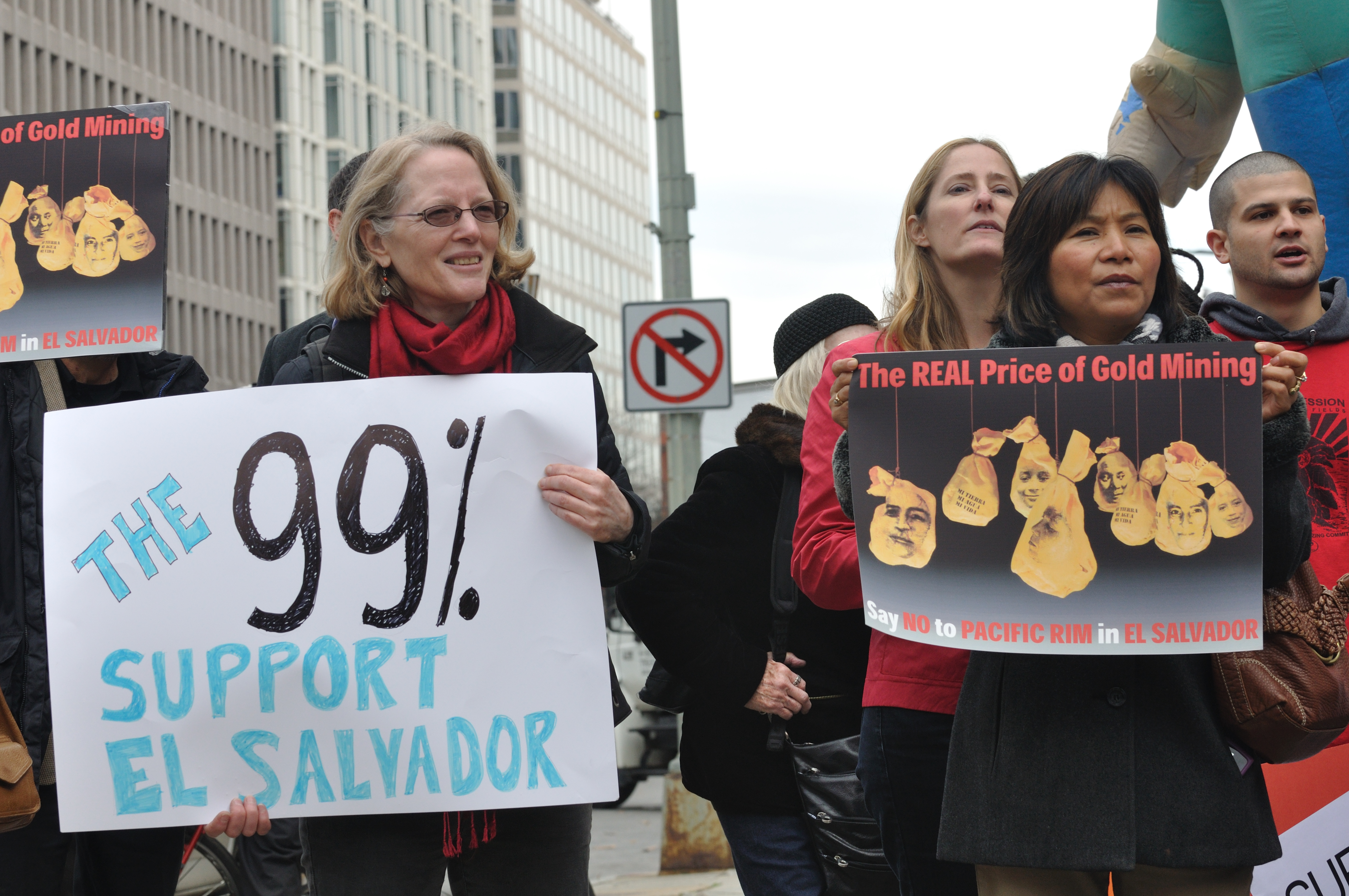- Blog
- Climate & Energy Justice
- Pac Rim case exposes trade pacts’ danger to democracy
Pac Rim case exposes trade pacts’ danger to democracy

Donate Now!
Your contribution will benefit Friends of the Earth.
Stay Informed
Thanks for your interest in Friends of the Earth. You can find information about us and get in touch the following ways:
“¡El pueblo unido, jamás será vencido!,” or “the people united, will never be defeated,” resounded outside World Bank headquarters yesterday in downtown Washington, D.C. Friends of the Earth staff joined about 75 people to protest a lawsuit that provides one of the most egregious examples of how our current trade policies let corporations trample democracy and people’s rights to a healthy environment.
In the suit, being considered by a little-known tribunal housed inside the World Bank, the multinational mining firm Pac Rim is demanding tens of millions of dollars from the deeply poor country of El Salvador.
Pac Rim alleges that the Salvadoran government violated investor rights under the Central American Free Trade Agreement when it did not grant a permit for Pac Rim to open a dangerous cyanide-leach gold mine at the basin of the Lempa River, which supplies water to more than half of El Salvador’s population.
The government refused to let Pac Rim move forward in the face of growing public outcry over the threat gold mining would pose to water supplies and the health of local communities. But Pac Rim wouldn’t relent. Instead, this subsidiary of a Canadian company opportunistically moved its business address from the Cayman Islands to the U.S. in order to appear eligible to file suit under CAFTA.
The tribunal is expected to rule any day now on whether, after this manipulative tactic, Pac Rim rightfully has jurisdiction to bring this case in the first place.
We demonstrated in front of a giant inflatable “fat cat,” apt because Pac Rim is in essence black mailing El Salvador for doing nothing more than safeguarding its citizens. Speakers, including Friends of the Earth’s president Erich Pica and representatives from the AFL-CIO, the Communication Workers of America, the Mary Knoll Office of Global Concerns and the Institute of Policy Studies, hit a consistent theme: trade agreements let corporate profits trump democracy — and that must change.
While people over profits was our message, solidarity was our tone. Anti-mining activists in the Cabañas region of El Salvador have been murdered fighting for an all-out ban on metals mining. Their names were read aloud, as well as a statement sent by La Mesa, a national coalition at the forefront of the struggle. La Mesa asserted, “Human rights, labor rights, and environmental rights are non-negotiable.”
That’s the way it should be in democracies of, by and for people. That’s the standard that drives our work to transform trade policies so that corporations like Pac Rim are no longer allowed to challenge regulations enacted by democratic governments to defend the public interest.
We have a lot of allies in this fight. Toward the end of the protest, a delegation walked to the entrance of the World Bank to hand-deliver a letter signed by more than 240 organizations, including Friends of the Earth, that represent more than 180 million people around the world. The groups’ message to the tribunal was firm and clear:
“We stand with these communities and the government of El Salvador in their demand that their domestic governance processes and national sovereignty be respected, and thus that this case be dismissed. We stand on the side of democracy.”
The tribunal should pay heed, for as the demonstration wrapped up we also repeated a clear promise: We’ll be back.
You can watch a video of yesterday’s protest put together by our allies at the Institute for Policy Studies.
